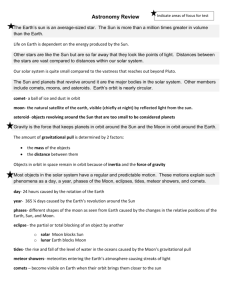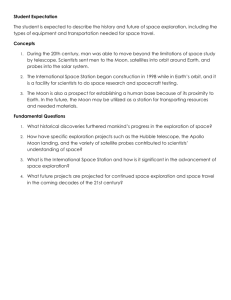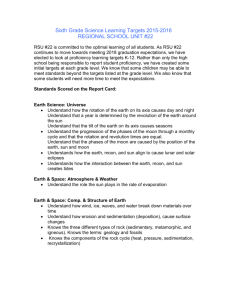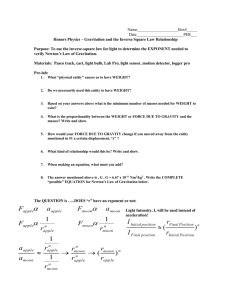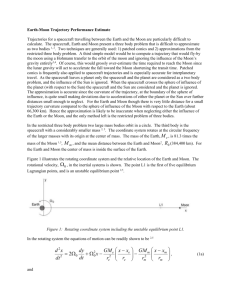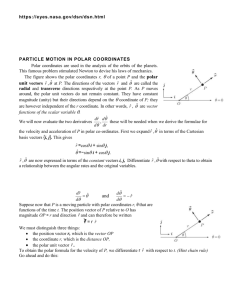8.3.4_Solar_Intensity
advertisement
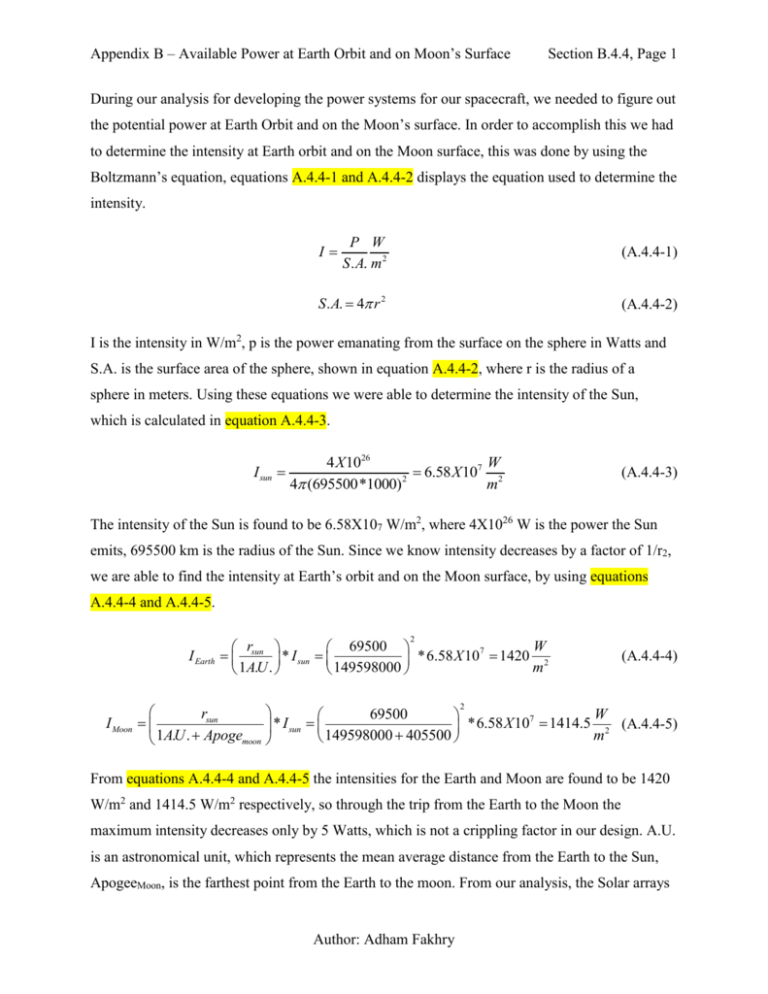
Appendix B – Available Power at Earth Orbit and on Moon’s Surface Section B.4.4, Page 1 During our analysis for developing the power systems for our spacecraft, we needed to figure out the potential power at Earth Orbit and on the Moon’s surface. In order to accomplish this we had to determine the intensity at Earth orbit and on the Moon surface, this was done by using the Boltzmann’s equation, equations A.4.4-1 and A.4.4-2 displays the equation used to determine the intensity. P W S . A. m 2 (A.4.4-1) S . A. 4 r 2 (A.4.4-2) I I is the intensity in W/m2, p is the power emanating from the surface on the sphere in Watts and S.A. is the surface area of the sphere, shown in equation A.4.4-2, where r is the radius of a sphere in meters. Using these equations we were able to determine the intensity of the Sun, which is calculated in equation A.4.4-3. I sun 4 X 1026 W 6.58 X 107 2 2 4 (695500*1000) m (A.4.4-3) The intensity of the Sun is found to be 6.58X107 W/m2, where 4X1026 W is the power the Sun emits, 695500 km is the radius of the Sun. Since we know intensity decreases by a factor of 1/r2, we are able to find the intensity at Earth’s orbit and on the Moon surface, by using equations A.4.4-4 and A.4.4-5. 2 I Earth W r 69500 7 sun * I sun *6.58 X 10 1420 2 . . m 149598000 1AU (A.4.4-4) rsun 69500 W 7 * I sun *6.58 X 10 1414.5 2 (A.4.4-5) . . Apogemoon m 149598000 405500 1AU 2 I Moon From equations A.4.4-4 and A.4.4-5 the intensities for the Earth and Moon are found to be 1420 W/m2 and 1414.5 W/m2 respectively, so through the trip from the Earth to the Moon the maximum intensity decreases only by 5 Watts, which is not a crippling factor in our design. A.U. is an astronomical unit, which represents the mean average distance from the Earth to the Sun, ApogeeMoon, is the farthest point from the Earth to the moon. From our analysis, the Solar arrays Author: Adham Fakhry Appendix B – Available Power at Earth Orbit and on Moon’s Surface Section B.4.4, Page 2 placed on our space vehicles will have the maximum potential power between 1420 and 1415 W/m2, due to how solar cells operate only 22% of the maximum potential power is absorbed, solar cells are designed to only absorb certain wavelengths within the visible range and reflects most other wavelength, giving it to its low inefficiency. In the end the solar cells will have a maximum potential power of 300 W/m2 for an average Gallium-Arsenide cell. Author: Adham Fakhry



